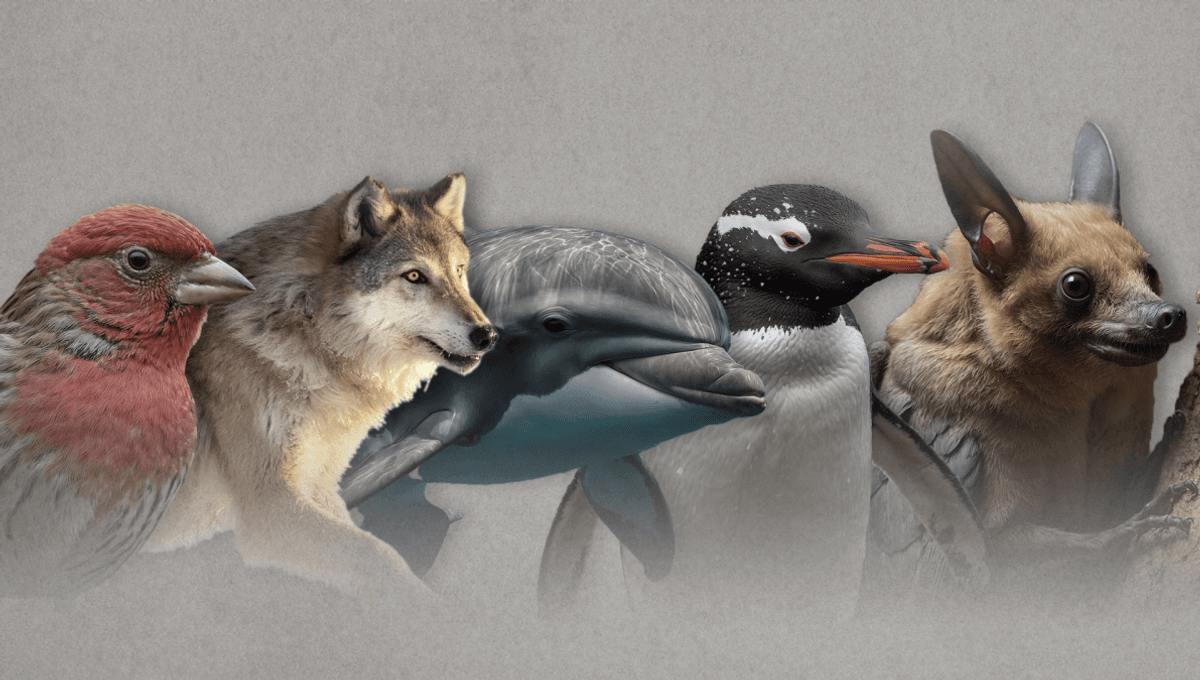
Cancer is not limited to us humans. Plenty of other species are also afflicted by it, but despite its pervasiveness, there’s still so much we don’t know. What animals are most likely to get it, for example – and why? This is the crux of Peto’s paradox.
What is Peto’s paradox?
Large-bodied, long-lived animals should be at greater risk of developing cancer. Their bodies contain more cells and therefore will undergo more cell divisions over their lifespan, each of which has the potential to introduce mutations. Statistically speaking, they should get more cancer.
Peto’s paradox, named after the statistician and epidemiologist Richard Peto who first proposed it, refers to the fact that this just doesn’t hold true: cancer incidence doesn’t correlate with body size.
Just look at the blue whale. It’s the most massive animal that’s ever lived and yet cancer is a pretty rare occurrence. Meanwhile, for us comparatively puny humans, there are tens of millions of new cases every year.
So, if not the largest animals, which are the most at risk?
Cancer in the animal kingdom
“Until recently, we didn’t know cancer rates in any species beyond humans, dogs and naked mole rats,” Carlo Maley, lead author of a new study investigating cancer across the animal kingdom, said in a statement.
In the last 10 years, Maley and colleagues have sought to rectify this, examining more than 16,000 necropsy records from 292 vertebrate species to get a more complete picture of animal cancer rates. The result is the largest study of its kind, and its findings might just surprise you.
First of all, they’re not necessarily in-keeping with Peto’s paradox: cancer prevalence did increase with body size, although the rise was minimal and not enough to disprove the paradox. At the same time, seemingly in support of the paradox, cancer rates tended to decrease in animals with longer gestation times, something that is associated with bigger bodies.
This likely speaks to the cancer suppression mechanisms that have evolved in larger animals. “Bigger, long-lived species invest more in somatic maintenance,” study author Amy Boddy said in a second statement. “I’d expect them to be better at defending against cancer, because they have to, in order to grow big and live long. It’s not really a paradox from an evolutionary point of view.”
Take elephants, for example. They have 20 copies of the tumor suppressor gene P53, which may well be why they so rarely get cancer despite their large size.
“Each species has a unique story of why and how they need to defend against cancer,” added Boddy, which explains why cancer rates and survival strategies are so varied among vertebrates.
Which animals are most likely to get cancer?
It seems, the team found, that some species may be more at risk of developing cancer than others. Among those with unusually high cancer rates are ferrets (63 percent of which developed tumors), opossums (56 percent), and four-toed hedgehogs (45 percent).
At the other end of the spectrum, the black-footed penguin had the lowest cancer rate at less than 0.4 percent, followed by the common porpoise (less than 1.3 percent) and the Rodrigues fruit bat (less than 1.6 percent).
Breaking the findings down into taxonomic groups revealed that mammals generally showed the highest rates of both benign and malignant tumors, followed by reptiles, birds, and amphibians.
“One thing that became really clear once we started gathering the data is that everything gets cancer,” said Boddy. “It’s just something about being a multicellular organism. No one’s completely protected.”
Overall, the study highlights that the interplay between size, longevity, reproductive lifespan, and cancer resistance is even more complex than we realized. By furthering our understanding of it in other species, we can bolster our chances of being able to fight it in our own.
“We are excited to harness nature’s strategies for combating cancer, to prevent it in humans,” co-author Zach Compton explained.
The study is published in the journal Cancer Discovery.
Source Link: Peto's Paradox: The Animals Most Likely To Get Cancer May Surprise You